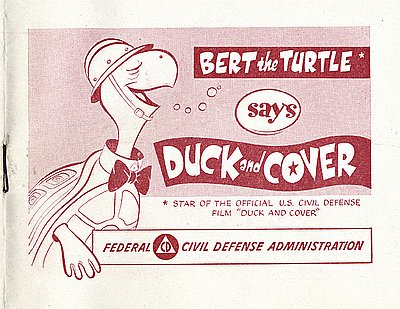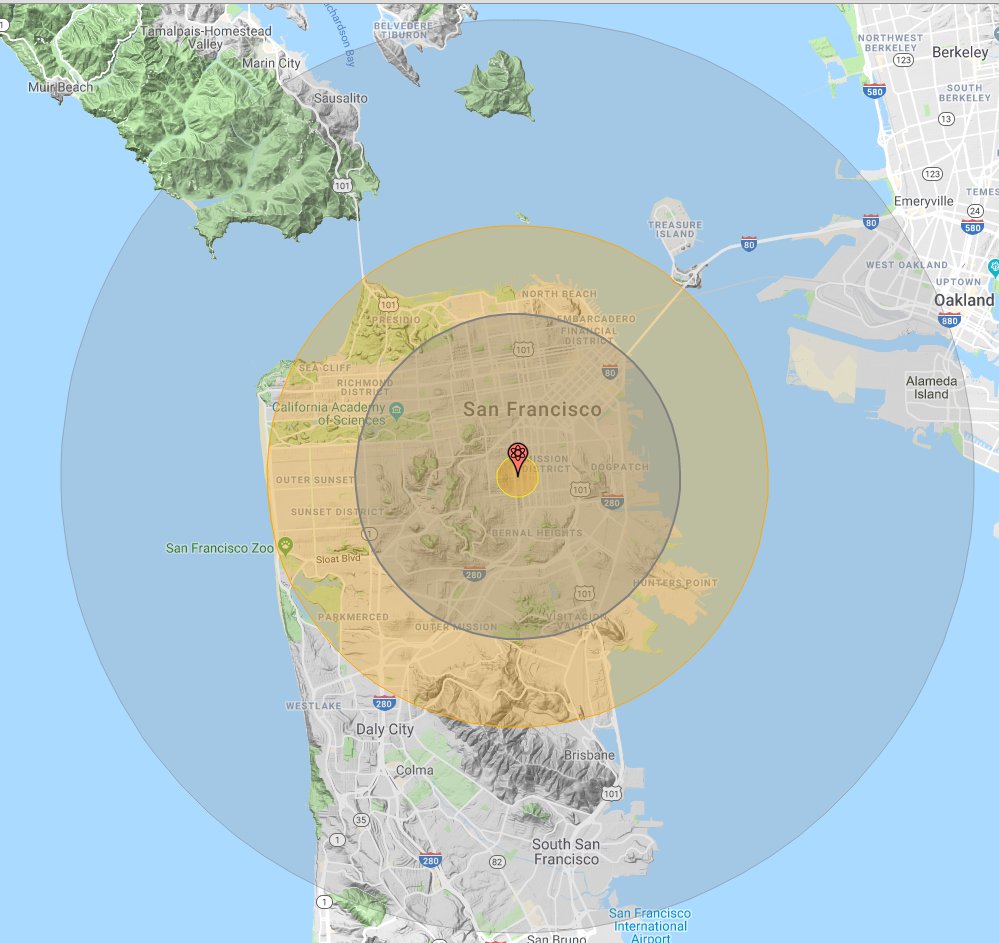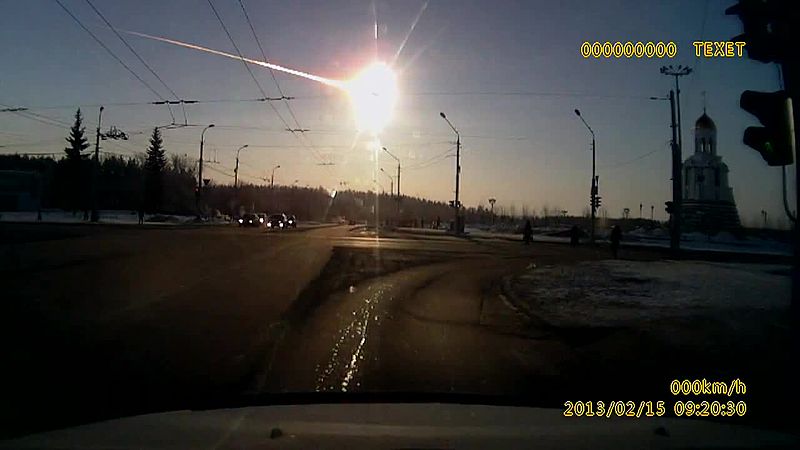I think the "Duck and Cover" advice given to schoolchildren in the 1950s is often wrongly mocked because of a misunderstanding about who exactly it was aimed at.
And I think it& #39;s still useful advice today, even if you don& #39;t get nuked.
And I think it& #39;s still useful advice today, even if you don& #39;t get nuked.
so if a nuke goes off in your city, there& #39;s four kinds of distances you can be from it:
1. close enough to be in the acute radiation poisoning range
2. close enough to be in the fireball
3. close enough to be within the shockwave
4. close enough to be affected by fallout
1. close enough to be in the acute radiation poisoning range
2. close enough to be in the fireball
3. close enough to be within the shockwave
4. close enough to be affected by fallout
if you& #39;re in ranges #1 or #2, you& #39;re dead. Sorry, but the only thing that can help you at this point is prayer.
and on the other end if you& #39;re in range #4, you& #39;ve got hours and days as it slowly falls down. you& #39;ll be evacuated, there& #39;ll be officials telling you what to do. no need for a PSA cartoon telling you what to do.
Duck and Cover was specifically designed for people in range #3: Close enough to be in the shockwave. This is where most of the damage happens.
If you& #39;re in the inner part of the shockwave, it& #39;s in ranges like 5PSI. The building is gone, or severely damaged.
If you& #39;re in the inner part of the shockwave, it& #39;s in ranges like 5PSI. The building is gone, or severely damaged.
and if you& #39;re in the inner part of the shockwave you& #39;re unlikely to have time to do anything.
But in the outer part of the shockwave, when it& #39;s expanded out and covering a larger area, it& #39;s more like 1 PSI. glass windows shatter. weak walls fall in.
But in the outer part of the shockwave, when it& #39;s expanded out and covering a larger area, it& #39;s more like 1 PSI. glass windows shatter. weak walls fall in.
guess what you should do if glass is about to shatter, or walls about to fall? well, you want to be away from the windows, and you also want to be under something in case a wall falls on you. Maybe you should duck away from the windows and cover yourself. OH HEY
so yeah. Duck & Cover wasn& #39;t just stupid cold war propaganda , it was "if you& #39;re in this intermediate range where short-term survival depends on what you do in the next few minutes, get on the ground and under something"
It was good advice.
It was good advice.
and we know that cause that exact advice has saved people! even without a nuclear war.
In 2013 a meteor exploded over the skies of the Chelyabinsk Oblast. The explosion was equivalent to a low-yield nuclear weapon, thankfully it exploded very high up.
In 2013 a meteor exploded over the skies of the Chelyabinsk Oblast. The explosion was equivalent to a low-yield nuclear weapon, thankfully it exploded very high up.
Despite no fireball and no radiation, about 1.5 thousand people were injured due to the shockwave. glass windows shattered, walls and ceilings collapsed.
and in one particular case, a fourth grade teacher (Yulia Karbysheva) saved all 44 of her students from injury by telling them to duck and cover, remembering the similar nuclear war drills the soviet union used to run. None of the students were harmed
she remained standing and not under a desk, and was severely injured by flying glass.
the moral of the story: if you see a bright light in the sky, get under a desk or some other shelter. get down on the ground, away from windows.
Cause it doesn& #39;t matter if WW3 started or it& #39;s just a space rock, shockwaves don& #39;t care.
Cause it doesn& #39;t matter if WW3 started or it& #39;s just a space rock, shockwaves don& #39;t care.
in any case, the final nail in the coffin for "duck and cover was just propaganda, we& #39;re all doomed in case of a nuclear war anyway" was that it was created in 1952.
At that time the USSR had between 17-200 weapons and no ICBMs.
At that time the USSR had between 17-200 weapons and no ICBMs.
it was expected that a nuclear war would involve bombers that could be shot down, and only a relatively small number of bombs at that. nuclear war seemed survivable at that point.
millions dead, maybe, but survivable.
millions dead, maybe, but survivable.
it only really started to seem like foolishness in the 70s and 80s, when the possibility of war had escalated to thousands and thousands of difficulty to intercept ICBMs. at that point you& #39;re talking multiple warheads per major city, and significant fallout.
but in 1952 it was good advice, and it& #39;s still good advice in general. if the sky lights up, duck and cover. the last place you want to be when a shockwave reaches you is staring out a window trying to figure out what it is.
anyway. Let& #39;s finish this thread by watching Duck & Cover, at the internet archive: https://archive.org/details/DuckandC1951">https://archive.org/details/D...

 Read on Twitter
Read on Twitter




